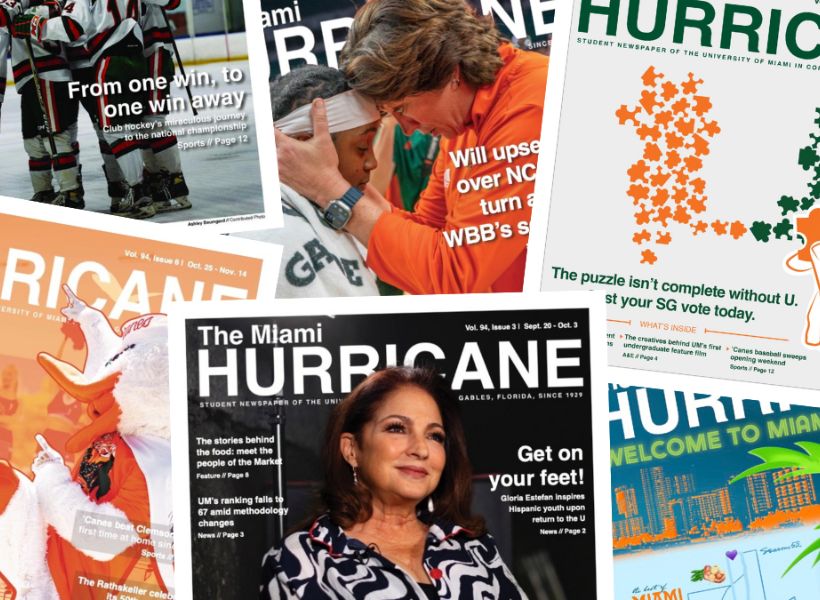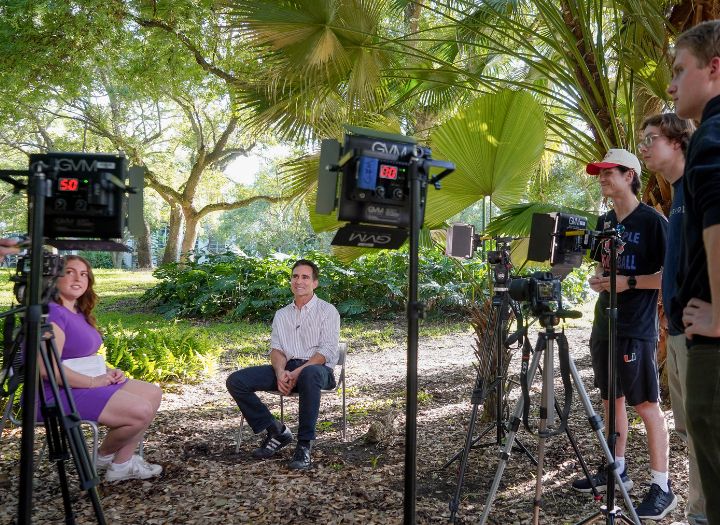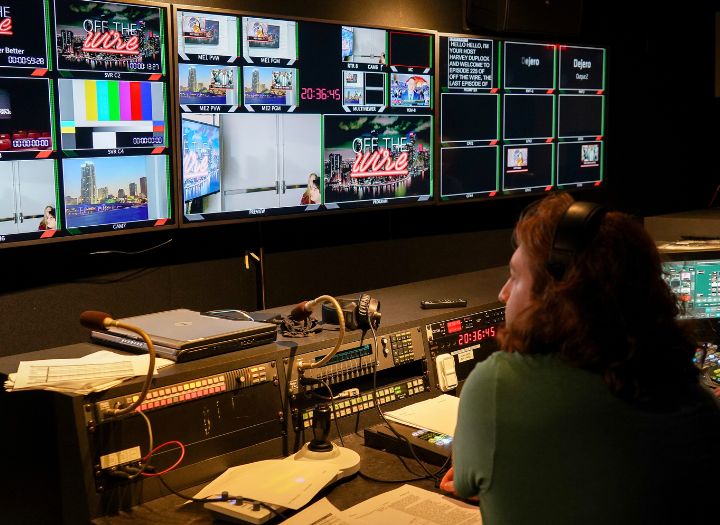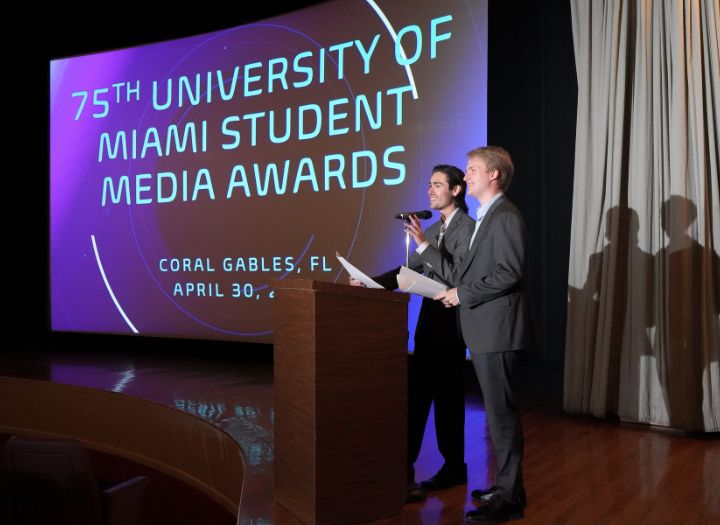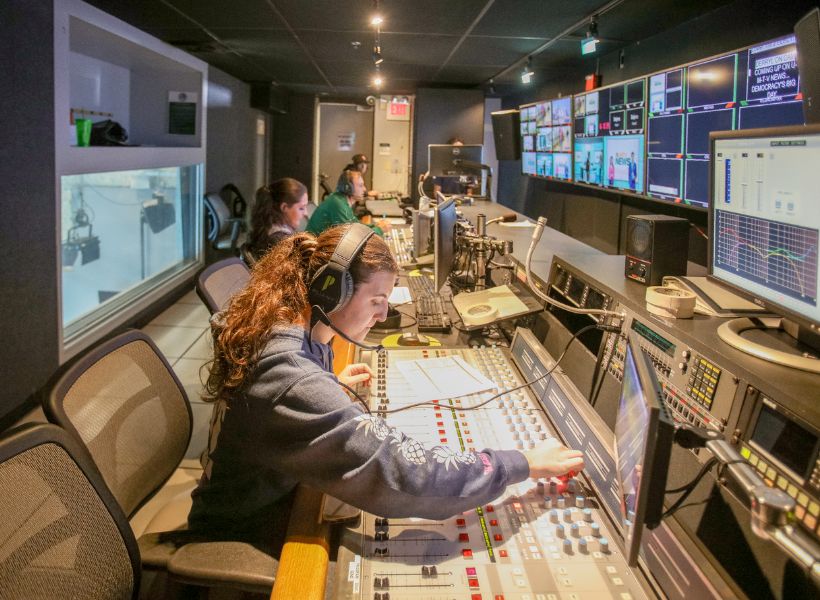
Join award-winning student media organizations such as UMTV and WVUM
Develop your media production skills across a variety of styles
Program offers a major and a minor in Electronic Media
Your Future in Electronic Media Starts Here
The Electronic Media, B.S.C. program gives students the freedom to blend media production, storytelling and entrepreneurship across traditional platforms and emerging media technologies. Students may gain hands-on experience at The Miami Hurricane, Distraction Magazine, UMTV and WVUM, developing practical skills, critical reasoning, and industry knowledge through diverse electives and real-world opportunities.
Explore some of the featured courses:
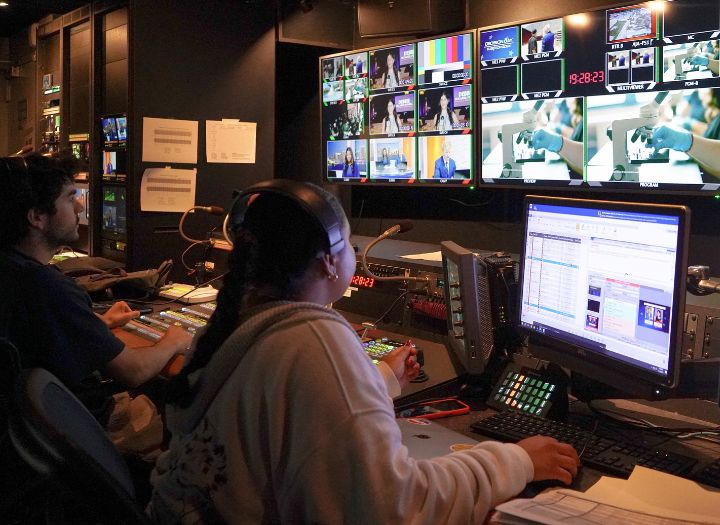
Ed Julbe
Coordinator
ejulbe@miami.edu
Related Minors
Broadcast Journalism
Hispanic Media
Journalism
Media Management
See all minors
Journalism student Emmi Velez shares her hands-on experience at the University of Miami’s popular alternative radio station. WVUM is a student-run radio station and just one of many student media outlets where ‘Canes gain professional experience right on campus.
UMLA
UMLA offers students a three-credit, seven-day transformative experience that takes you on a journey through the entertainment capital of the world. Immerse yourself in the dynamic city of Los Angeles, with its thriving arts scene and numerous cultural landmarks, while gaining firsthand insight into the inner workings of the entertainment industry.

